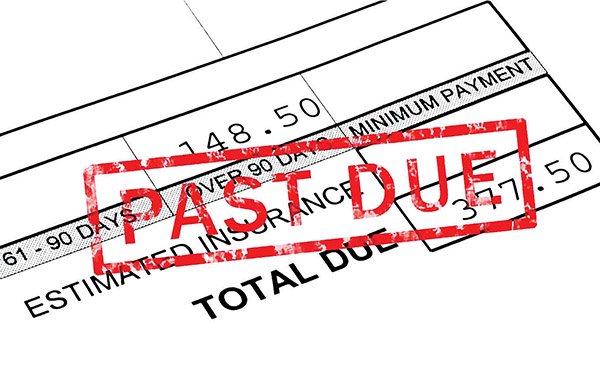Monthly Archives: November 2015
 28
28Nov
The Formation of a Contract without both Party’s Signature.
Often times, a binding contract is formed even when all of the parties involved do not sign the written contract. One party may “jump the gun” and start performing before the other party(s) sign the document or one party may sign the contract but the other party does not, and both parties start performing. In circumstances like these, it is important to know your rights and obligations when one party seeks to enforce the terms of the written contract even though not all parties signed it.
A situation where one party signed the contract and the other did not arose in Lease America. Org, Inc. v. Rowe International Corp, in the First Circuit Court of the United States. America’s president signed the contract but next to his signature he wrote, “(with conditions)”. Both parties began working together until a few years later, a dispute arose between them and America attempted to sue Rowe in a Massachusetts court based on the terms of the contract. Rowe motioned for the case to be removed to Michigan pursuant to the choice of law clause in the contract. America then objected to the removal based on the fact that the terms were not binding (since both parties did not sign the contract) and that by America writing “(with conditions”), the signature was simply a counter offer.
For there to be a contract, written or oral, there must be: (1) an offer (2) acceptance (3) and consideration. An offer is just that, offering to do something or refraining from something. The Offeree, the one receiving the offer, typically must agree to the exact terms of the offer. Under most circumstances, if the Offeree changes or adds terms, it is considered a counter-offer. Generally, consideration means that one party must be giving something to get something, no matter how small. The issue in the case above was whether America accepted the terms of the offer from Rowe or actually made a counter-offer by writing “(with conditions”) next to his signature.
 In this case, the court held that there was a valid written contract between the two parties even though Rowe never signed it. The court reasoned that although both parties did not sign the contract, it was clear from the record that both parties manifested an acceptance to the agreement. This case offers a great example about the formations of valid contracts and how a party may become bound to a contract even if the party did not sign it. One of the most important factors when deciding whether there is a valid contract is the dealings of the parties. The more time that the parties conduct business pursuant to the terms of the contract, the more likely a court will find that a valid written contract exists.
In this case, the court held that there was a valid written contract between the two parties even though Rowe never signed it. The court reasoned that although both parties did not sign the contract, it was clear from the record that both parties manifested an acceptance to the agreement. This case offers a great example about the formations of valid contracts and how a party may become bound to a contract even if the party did not sign it. One of the most important factors when deciding whether there is a valid contract is the dealings of the parties. The more time that the parties conduct business pursuant to the terms of the contract, the more likely a court will find that a valid written contract exists.
It is important to obtain legal contractual device from an attorney with experience litigating contractual disputes. If you have any questions about contract formation or are wondering whether you are bound to a contract even though you did not sign your name to a piece of paper, fell free to contact our office.
See also: http://www.lexology.com/library/detail.aspx?g=4642a123-c032-4c81-b8e5-5bf419e1f790&utm_source=lexology+daily+newsfeed&utm_medium=html+email+-+body+-+general+section&utm_campaign=aba+rptel+subscriber+daily+feed&utm_content=lexology+daily+newsfeed+2015-11-23&utm_term=
 06
06Nov
Debt Buyers and the Influx of Default Judgements
Do you owe a bank for unpaid credit card debt, or have you failed to pay the balance of an old cell phone bill? If so, it is likely that you have received telephone calls from unknown representatives from what you believe are suspicious companies, claiming that you now owe them money. If this is the case, it is important that you don’t ignore the phone calls because it is likely that they do have the legal authority to collect the debt.
For well over a decade, larger banks and companies have sold their “uncollected debt” to third parties. When the debt is sold, it is often sold for pennies on the dollar. If the debt buyer is unsuccessful in collecting the debt, or was only capable of collecting a portion of it, the uncollected amount is further sold to smaller debt collection companies. Five of the largest debt collecting companies including Encore Capital Group, PRA, and Asta Funding together own about 80 percent of all credit card debt sold in the United States. This is troubling because smaller debt collecting companies are typically more flexible with the consumer. Recently PRA was required to refund $19 million to consumers because the representative said that a lawyer had “reviewed” the debt and that they were calling on behalf of a lawyer when really a lawyer did not review the debt and they were not calling on behalf of an attorney.
Another big problem with regard to debt collection and buying, is how easy it is for debt owners to get a legal judgment against the consumer and how little it is patrolled. Often the debt collector buys the debt from a large company, cannot collect the debt, and then files a lawsuit against the consumer. Because the consumer is not familiar with company that currently brings the lawsuit, the consumer does not respond to the lawsuit and then the debt collector seeks a default judgment. Due to the high volume of cases like this, courts often “rubber stamp” the judgments without requiring the debt owner to show adequate proof that the consumer actually owes the debt and/or that the debt collector has legal right to collect it.
often “rubber stamp” the judgments without requiring the debt owner to show adequate proof that the consumer actually owes the debt and/or that the debt collector has legal right to collect it.
In 2016, the Consumer Financial Protection Bureau is expected to issue comprehensive rules regulating debt collection and debt buying. Until then, the rules vary from state to state, some granting more protection to the consumer and others, like Arizona, have passed legislation that has made it easier for debt buyers to collect the debt.
Regardless of your location, it’s extremely important to remember that if you receive a lawsuit or complaint in the mail, do not ignore it, even if you are not familiar with the Plaintiff’s name. You should immediately consult with an attorney experienced with debt collection. If you need advice regarding debt collection, don’t hesitate to contact our office.
see http://www.abajournal.com/ for more information.